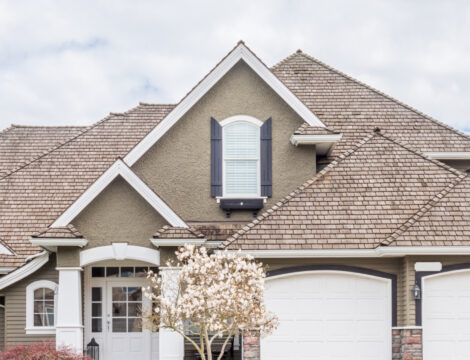
Tax Benefits of Home Ownership – Part 2: Capital Gains Tax
If you were to sell your non-real estate investment, you will have to pay capital gains tax, which will vary depending on the duration that you owned the investment; it could be as high as 24 percent or 32 percent. By contrast, with a real estate investment, you will likely either not have to pay capital gains or will be able to defer any tax payments for quite a while (you should definitely speak with a CPA or tax professional). Many homeowners become real estate investors when they move. They keep the house that was formerly their primary residence and rent it out as an investment property. That’s when the tax benefits really kick in.

Expences
Once the home becomes an investment property, nearly everything becomes an expense. The fire policy insurance premiums, property manager fees, property repairs and upgrades are all expenses that you will deduct from your rent collected to determine your net profit, and thus your taxable income. But it doesn’t stop there.
Even if you end up showing a net profit, your CPA can now depreciate the asset—even though in actuality your home probably appreciates—thus showing a loss and reducing the amount of your taxable income.
Once you have a property that you use as an investment property, I highly recommend spending the $300 to $500 to hire a CPA to do your taxes. It is money very well spent, and it is also tax-deductible.
Capital Gains Tax
Capital gains tax is paid on profits or gains from selling capital assets, property, and possessions. If you sell your home for more than what you paid (minus fees, closing costs, and so on), you made a profit or gain on the asset and would have to pay the capital gains tax. If you sell the asset in one year or less, you would pay short-term capital gains; more than one year, you would pay long-term capital gains. However, under the new Tax Cuts and Jobs Act (as of 2018), the rules for the capital gains on real estate have changed somewhat.
SHORT-TERM CAPITAL GAINS TAX BRACKETS
| Tax Bracket/Rate | Single | Married Filing Jointly | Head of Household |
| 10% | $0–$9,700 | $0–$19,400 | $0–$13,850 |
| 12% | $9,701–$39,475 | $19,401–$78,950 | $13,851–$52,850 |
| 22% | $39,476–$84,200 | $78,951–$168,400 | $52,851–$84,200 |
| 24% | $84,201–$160,725 | $168,401–$321,450 | $84,201–$160,700 |
| 32% | $160,726–$204,100 | $321,451–$408,200 | $160,701–$204,100 |
| 35% | $204,101–$510,300 | $408,201–$612,350 | $204,101–$510,300 |
| 37% | $510,301+ | $612,351+ | $510,301+ |
As a comparison, long-term capital gains rates are substantially lower.
SHORT-TERM CAPITAL GAINS TAX BRACKETS
| Tax Bracket/Rate | Single | Married Filing Jointly | Head of Household |
| 0% | $0–$39,375 | $0–$78,750 | $0–$52,750 |
| 15% | $39,376–$434,550 | $78,751–$488,850 | $52,751–$461,700 |
| 20% | $434,551+ | $488,851+ | $461,701+ |
Tax Exemption for Primary Residence
In contrast to stocks, bonds, mutual funds, and other financial investments, profits from the sale of your home might exempt you from tax on capital gains entirely. Under IRS rules, each person receives a $250,000 tax-free exemption on capital gains from a primary residence regardless of how much the person earns. Until 1988, this exemption was more of a capital gains deferral or rollover that accumulated over the years. Now you can exclude this capital gain from your income permanently as long as certain provisions and requirements apply, or partial exemption under certain circumstances.
However:
Capital gains tax is paid on profits or gains from selling capital assets, property, and possessions. If you sell your home for more than what you paid (minus fees, closing costs, and so on), you made a profit or gain on the asset and would have to pay the capital gains tax. If you sell the asset in one year or less, you would pay short-term capital gains; more than one year, you would pay long-term capital gains. However, under the new Tax Cuts and Jobs Act (as of 2018), the rules for the capital gains on real estate have changed somewhat.
